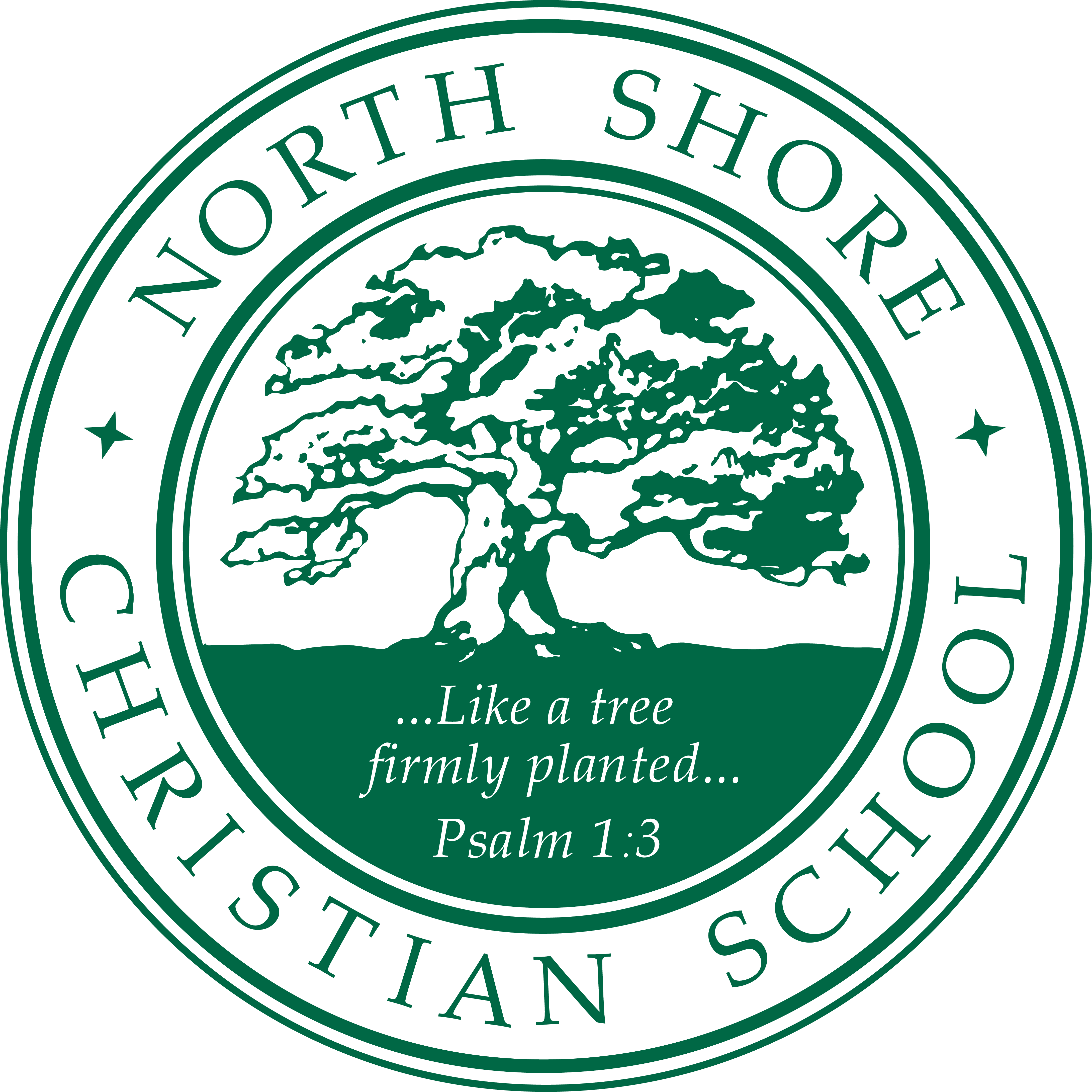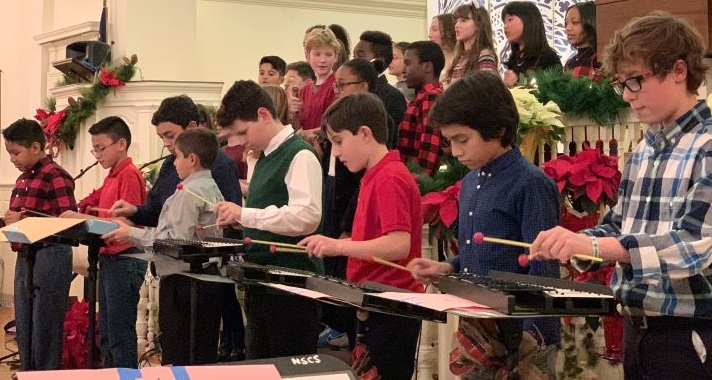Music Education
Beginning in Kindergarten all students receive weekly music education classes. Research has indicated that music increases a child’s cognitive ability, and increases the likelihood that a child will stick with a musical instrument or music classes in the future, if it is part of the curriculum. At NSCS music education is an important aspect of programming and attention is focused on teaching students how to read music, understand tempo and rhythm, and in general how to create melody and song with our voices. This occurs through chorus instrumentals, rhythm and rhyme, and learning how to read and write music. The intention of the music curriculum is to affirm and stimulate the creative abilities of students, to celebrate the great gift of music that God has given to each of us, and to extend the student’s capacity for insight, invention, deep understanding and appreciation for music.
 The students perform in two concerts during the year. The music program includes instruction in choral music as well as various instrumental options.
The students perform in two concerts during the year. The music program includes instruction in choral music as well as various instrumental options.
Art Education
Students learn the importance of expressive intent in their work and practice the technical skills and techniques that they need to achieve their expressive goals. In the course of the school year, students use a wide range of materials to express themselves in drawing, painting, papier-mâché, clay sculpture, origami and collage. Every lesson centers on one or more principles and elements of design with artwork from an anchor artist. During the introduction and final critique of each project, students practice discussing their observations as well as thinking critically about the context of art in society and within the framework of our Christian faith. They also gain art history knowledge in order to engage in artistic conversation.
Performing Arts
Engaging in and exposing students to a varied selection of performing arts mediums grows musicality in children. Music, and all that it encompasses in the way of voice, instrumentals, rhythm and rhyme, and learning how to read and write music serves to enrich a child’s learning experience and fosters whole child development.
Theater, and its relationship to performance, acting, and improv provide opportunity for students to grow their capacity to memorize a script or think on their feet, and of course, become comfortable presenting in front of an audience.
Finally, our Praise & Worship Teams learn the difference between performing in front of an audience versus guiding others in an act of worship. Each and every opportunity opens new doors and experiences for students in these formative years and serves to enlighten and inspire children as to the possibilities that exist and that talent that lies within.

Theater Arts
Theater Workshop is open to students in grades 4-8. This fee-based workshop introduces students to the craft of acting through improvisations, vocal exercises, physical warm-ups, character development, and working with a script. Students learn effective skills of listening and responding, the ability to move with rhythm and purpose, and an understanding of basic stage direction and vocabulary.
Theater Production is open to students in grades 4 -8 and younger students, with permission of the director and is fee-based. Students work as an ensemble in the rehearsal and production of a selected musical or dramatic play. Actors may also change scenery, assist with make-up and costume changes, or perform backstage roles.
 North Shore Christian School
North Shore Christian School
